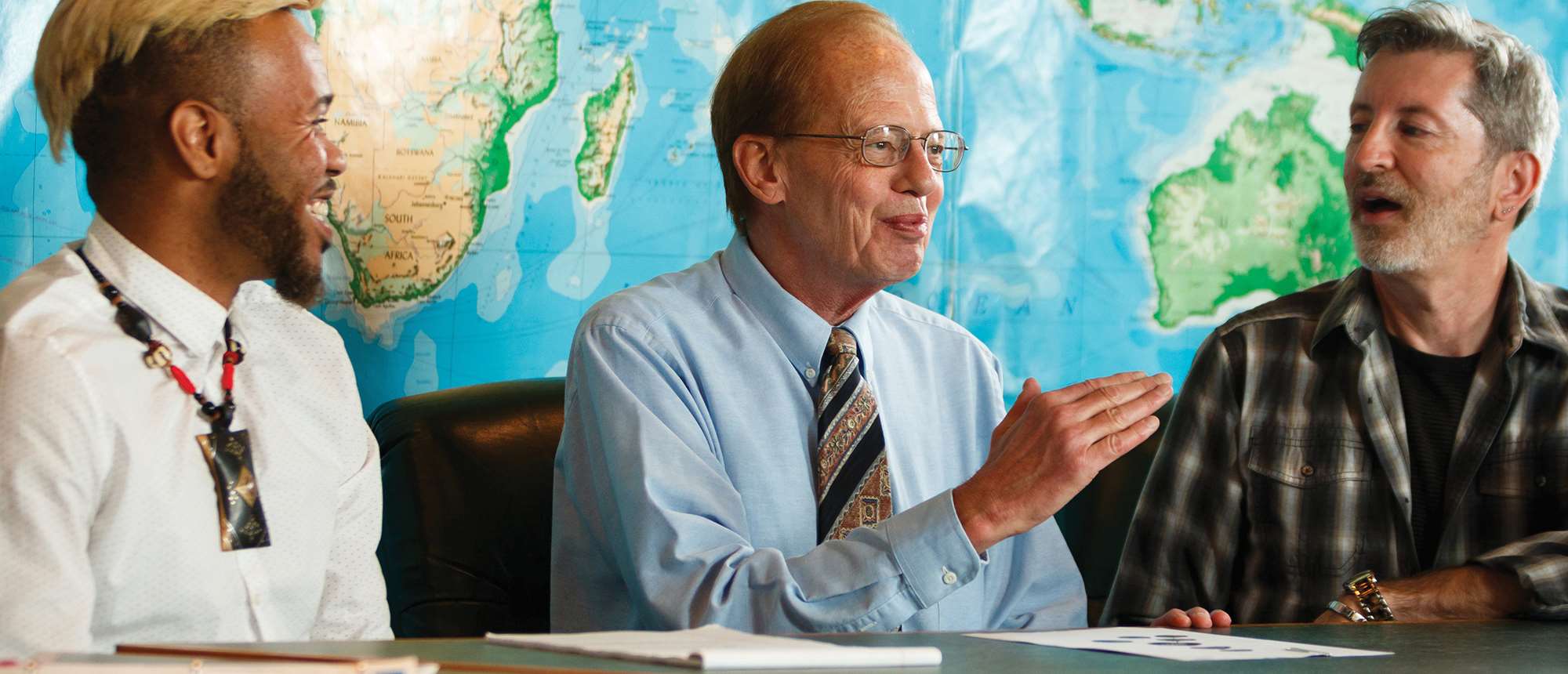Lessons from Past HIV Outreach Being Utilized to Address COVID-19 Disparities

Forty years ago, remembers Jeffrey Kelly, PhD, a professor in the Department of Psychiatry and Behavioral Medicine at the Medical College of Wisconsin (MCW), we were on the brink of another pandemic: AIDS.
“It was just uncovered,” recalls Dr. Kelly, who is also the director of the Center for AIDS Intervention Research (CAIR) at MCW.
Discovered in 1981, HIV, the virus that causes AIDS, has killed more than 35 million individuals across the world. It was estimated that in 2020, 37.7 million people were living with HIV.
CAIR was established in 1990 to combat the growing epidemic through research and the development of new strategies to prevent HIV among vulnerable populations.
Over the years, Dr. Kelly says, the center pushed the envelope on a number of interventions from the angle that some in the community are opinion leaders who are socially connected and who can be mobilized into a very powerful force for prevention and care.
“These aren’t political leaders, and they’re not health authorities. These are people you know and you listen to,” Dr. Kelly says. “People form ideas about what they should do based on what people they already know and trust are doing themselves.”
From this awareness came campaigns that engaged bar owners and others to identify people who would now be referred to as “social influencers” to help share HIV prevention messages and information.
Using HIV and AIDS Research to Inform COVID Concerns in the Community
After success utilizing this method over the years to address HIV, Dr. Kelly and others felt those efforts were relevant to the current COVID-19 pandemic. Generally, he says, public health relies on experts telling other people what to do, whether it’s government experts or health care voices. While he agrees that this is vital and needed to deal with a crisis, people make their decisions based on what they hear from different sources.
“Especially from people who they see as being like themselves,” he says.
In response, the center, with grant support through the Advancing a Healthier Wisconsin Endowment at MCW, is utilizing the time-tested strategies to help those most impacted by the COVID-19 pandemic.
The first step in doing so was speaking with community residents to find out what needs they had or were hearing about and how those needs could be addressed.
“What do you do if somebody in your family is ill and you have a couple generations living in your house, or where can I get my kids meals because they’re not at school?” Dr. Kelly says, discussing some of the issues people faced during the height of the pandemic.
Using Social Influencers to Communicate COVID Health Awareness
The team then identified social influencers, some of whom were found on Facebook and some through faith communities and other ways, and asked them to help produce and share messages developed around these needs as a way to help save lives in the community.
“Their words matter and can impact the health of others,” Dr. Kelly says. “People want to be part of the solution.”
The campaign engaged more than 1,000 social influencers in Milwaukee to talk about these issues, both face to face and on social media, reaching tens of thousands of people with messages about COVID.
A new campaign, this one supported through a grant from the National Institute on Minority Health and Health Disparities, is being developed to address community concerns and to optimize uptake in COVID-19 vaccinations in racial minority communities.
“We’re doing interviews with people who have been vaccinated, but also people who haven't been vaccinated and learning about both,” says Dr. Kelly, who adds that community member in-depth interviews are being supported by Progressive Community Health Centers.
They’ll also develop community surveys and then move forward with creating messaging and identifying key influencers to share those messages.
“We’re not trying to push everyone to get vaccinated; you won’t get very far by pushing,” Dr. Kelly says. “It’s important to know what the public health facts and recommendations are and to make sure that gets communicated by people who are influential and who you personally know and trust.”



